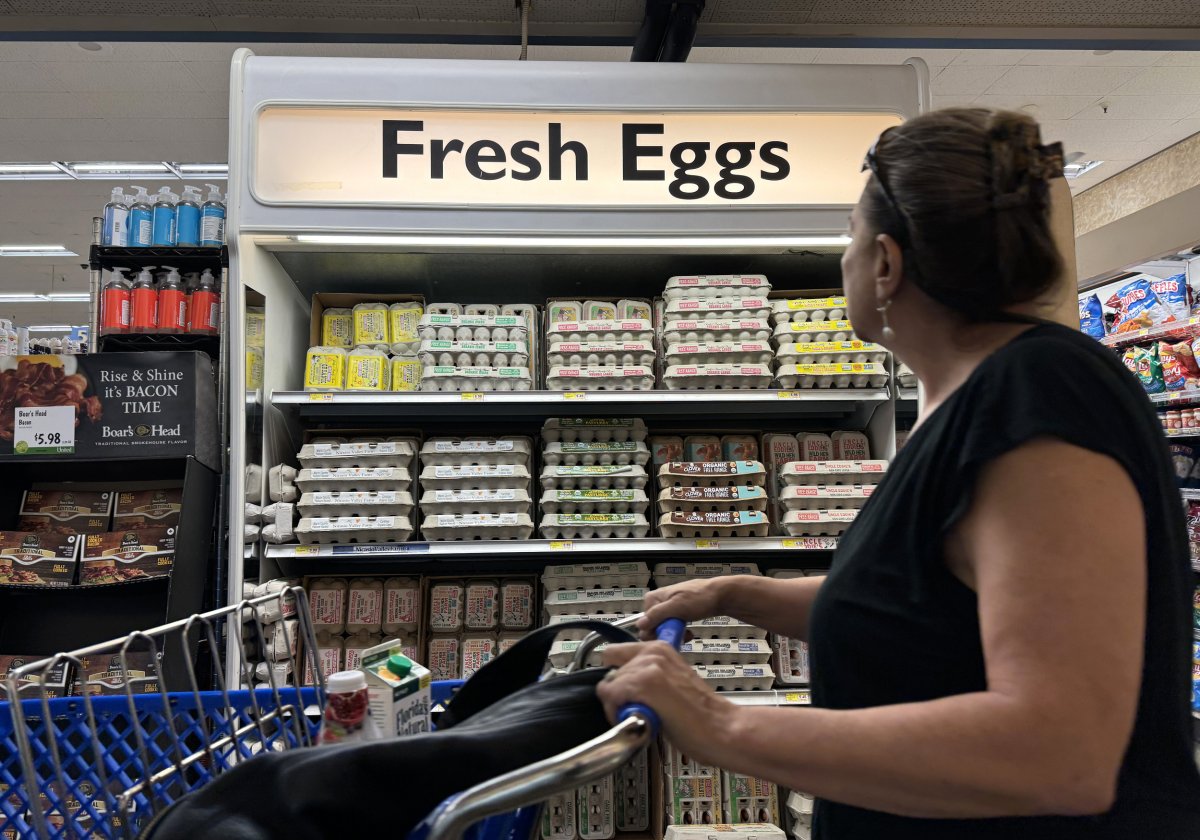The cost of eggs in California has jumped nearly 70 percent in the past month, reaching $8.97 for a dozen.
The price hike, emphasized in the U.S. Department of Agriculture's December egg markets report, owes largely to a series of highly pathogenic avian influenza outbreaks that have decimated the state's poultry flocks.
Why It Matters
The surge in egg prices comes as Americans grapple with persistent grocery price inflation. The cost of essential items, like eggs, has been a hot-button issue for voters and has influenced political outcomes, such as Donald Trump's election victory after many voters held the Biden-Harris administration responsible for rising prices. Also, California finding itself at the epicenter of a nationwide bird flu outbreak stresses the vulnerability of the food supply chain, raising questions about the state's readiness to handle agricultural crises.

What To Know
In December alone, nine confirmed cases of bird flu across California resulted in the culling of nearly 6 million egg-laying hens. Merced, Riverside, San Joaquin, and Stanislaus counties were the hardest hit, with Merced County losing 1.7 million birds on December 5 and Stanislaus County seeing another 1.1 million culled by Christmas Eve.
The losses coincided with the holiday season when demand for eggs typically peaks. Grocery retailers such as Whole Foods and Safeway put purchase limits on eggs, citing supply chain disruptions. Cage-free eggs, which are mandatory under California's strict animal welfare laws, have been especially hard to source.
California's challenges are part of a broader crisis. The USDA has reported bird flu outbreaks in other major egg-producing states, including Iowa and Ohio. With the U.S. egg-laying flock expected to fall below 300 million hens—its lowest since the 2022 bird flu crisis—national egg production is unlikely to stabilize before mid-2025, barring further outbreaks.
The impact isn't limited to grocery store shelves. Small businesses in the food production industry are struggling to source enough eggs, threatening their ability to meet customer demand and stay profitable.
Experts estimate a recovery period of four to six months for affected areas, depending on the virus' trajectory. However, lingering supply chain issues and additional outbreaks could extend this timeline.
What People Are Saying
Brian Moscogiuri, vice president of Eggs Unlimited to CNBC: "There's a very real chance we could flirt with record highs [for prices]."
What Happens Next
California's response to the bird flu outbreak, including increased biosecurity measures and state support for affected farmers, will be critical in determining how quickly egg supplies stabilize. Nationally, policymakers may face pressure to address the economic fallout and ensure food affordability. Meanwhile, consumers and small businesses will need to adapt to higher prices and ongoing shortages.



















:quality(85):upscale()/2024/04/24/878/n/3019466/36c5693c662965c5d1ce91.72473705_.jpg)
 English (US) ·
English (US) ·